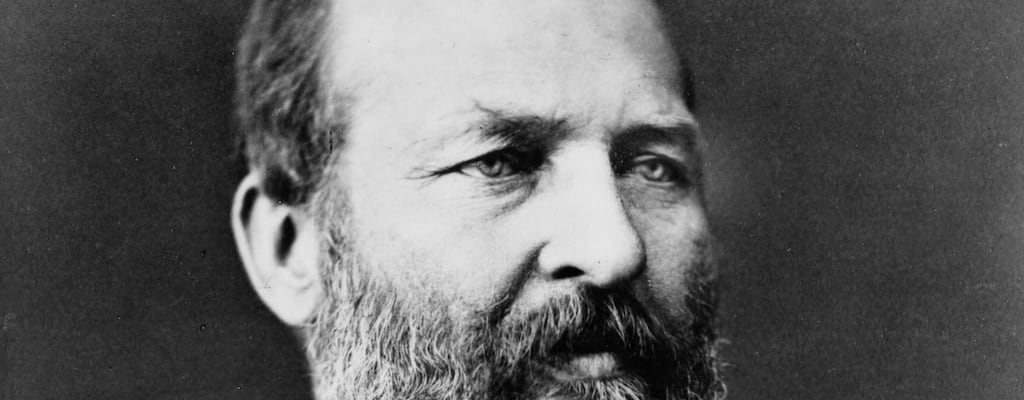Master John Goodfellow: Idiom Meaning and Origin
What does ‘Master John Goodfellow’ mean?
The idiom "Master John Goodfellow" refers to an inexperienced or naive person, often used humorously.

Idiom Explorer
The idiom "wet boy" is used to describe a naive or inexperienced young man. It suggests that the individual is not yet mature or knowledgeable enough to fully understand or handle certain situations.
An idiom meaning a foolish or pointless activity.
The idiom "mud monkey" refers to someone who works in construction or manual labor, particularly in muddy or dirty conditions. It conveys the idea of someone who is not afraid to get their hands dirty and is skilled at working in demanding environments.
The idiom "monkey business" refers to mischievous or dishonest behavior, often involving pranks or tricks. It is used to describe actions that are not serious or professional.
The idiom "Mickey Mouse" is used to describe something that is trivial, insignificant, or lacking seriousness or quality.
The idiom "merry men" refers to a group of jovial and lighthearted individuals. It can also be used to describe a band of close companions who share a sense of camaraderie and enjoy each other's company.
The idiom "man of the people" refers to an individual who is relatable and well-liked by the general public. This person typically exhibits qualities of being down-to-earth, approachable, and in touch with the concerns and needs of ordinary people.
Unraveling Goodfellow's Persona
The idiom *Master John Goodfellow* is not widely known or commonly used, but it still conveys a specific meaning. This idiom is a play on the name "John Goodfellow," which was often used in literary works to depict a friendly and amiable character. However, it is important to note that this idiom does not refer to a specific individual named John Goodfellow, but rather uses the name metaphorically.
When used idiomatically, *Master John Goodfellow* typically describes a person who is skilled at navigating social situations and putting others at ease. This idiom draws from the portrayal of John Goodfellow as a friendly and pleasant character, using his name to describe someone who possesses similar qualities.
Due to its limited usage and lack of widespread familiarity, the idiom *Master John Goodfellow* may be more commonly encountered in older texts or literature. It is possible that the phrase originated from a specific work or author, but further research is needed to determine its exact origins.
While it is difficult to pinpoint the precise meaning of this idiom, it is clear that it describes someone who is charming, friendly, and skilled in social interactions. However, because of its relative obscurity, it is unlikely to be commonly heard or understood in everyday conversation.
The idiom *Master John Goodfellow*, also referred to as "honest John", represents an intriguing linguistic expression that connotes a person who possesses an amiable and affable demeanor. Although the origins of this idiom remain somewhat mysterious, its meaning transcends time, offering a glimpse into the importance of sociability and charm in human interactions. While it may not be a phrase encountered frequently in contemporary conversations, it serves as a reminder of the nuanced ways in which language reflects our understanding of social dynamics.
*Master John Goodfellow* is one of the many variations of the name "John" used to represent an everyman character in various idioms and expressions. Another related idiom is *John Citizen*, which is used to depict an ordinary person, often referencing the average citizen. While *Master John Goodfellow* emphasizes a person's affability, *John Citizen* highlights their ordinariness. Both idioms tap into the universality of using the name "John" to represent relatable individuals.
In contrast, the idiom *jack of all trades, master of none* takes a different approach in relation to *Master John Goodfellow*. This idiom implies that a person is capable of performing many different tasks or skills, but is not an expert in any one particular area. While *Master John Goodfellow* represents someone who is skilled at social interactions, *jack of all trades, master of none* implies a lack of specialization.
*wet boy* is another related idiom that is tangentially connected to *Master John Goodfellow*. The term "wet boy" originally referred to a boy who worked in the theater to collect tickets and hand out programs. Over time, it has come to represent someone who is inexperienced, particularly in a specific field or role. In contrast, *Master John Goodfellow* emphasizes expertise and skill, so these two idioms depict opposite qualities.
Lastly, *funny man* is an idiom that represents someone who is humorous or entertaining. While *Master John Goodfellow* may possess qualities of humor and charm, it has broader connotations of social skills and general affability. *Funny man*, on the other hand, specifically focuses on a person's ability to make others laugh and entertain.
Example usage
Examples of how the idiom *Master John Goodfellow* can be used in a sentence:
- When it comes to solving difficult puzzles, Sam is a *Master John Goodfellow*.
- Despite his young age, David is a *Master John Goodfellow* in the world of chess.
- Emma's ability to fix any technical issue quickly earned her the reputation of being a *Master John Goodfellow*.
More "Surname" idioms
We missed the mark - nothing found.



